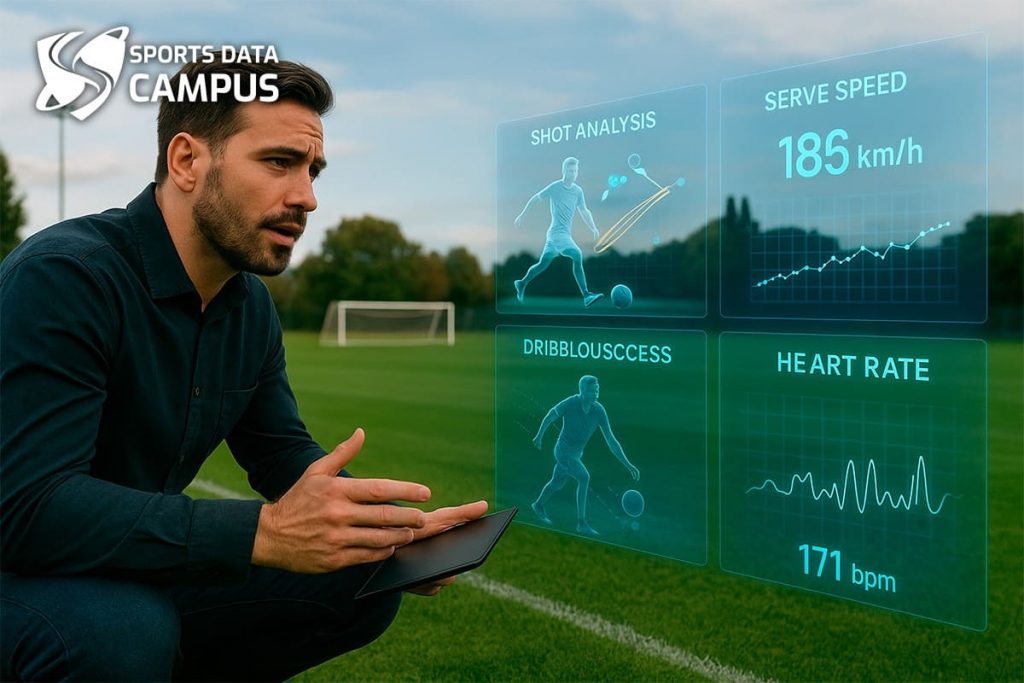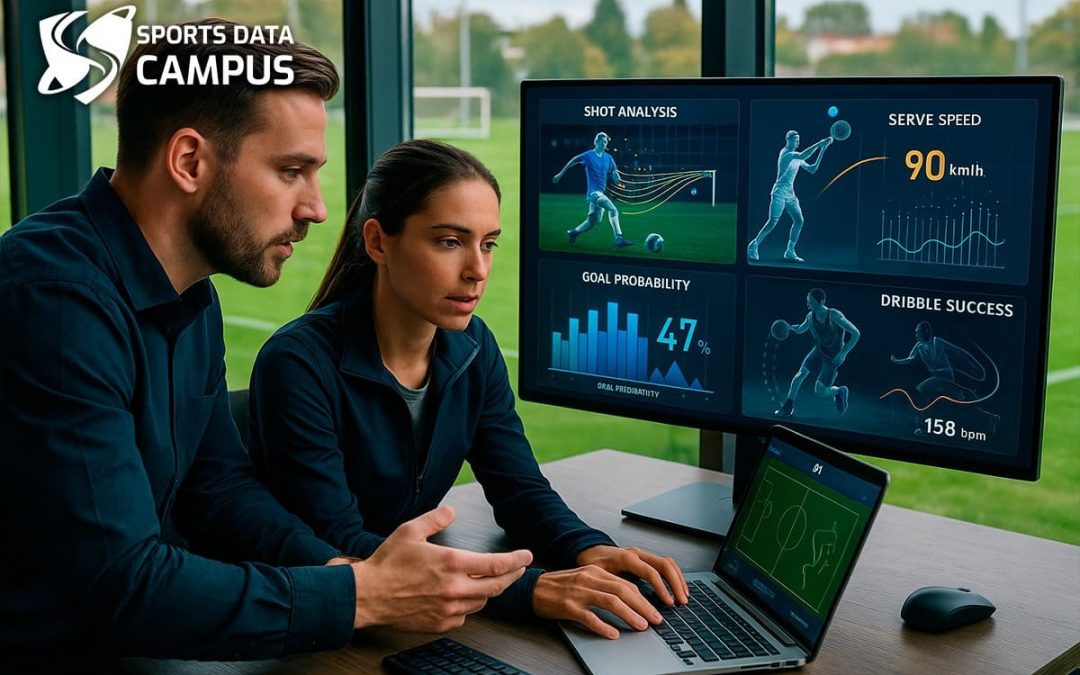In today’s world, Artificial Intelligence in sports team management has become a real game-changer. More and more clubs and organisations are relying on smart systems to make faster decisions, analyse huge amounts of data and boost overall performance. What used to depend mainly on intuition and experience is now backed by advanced algorithms that can uncover insights humans often overlook.
Artificial Intelligence in sports team management is not about replacing coaches or managers but about giving them powerful tools to support everything from player development to injury prevention. The result is a smarter and more efficient way of running teams, where technology and human expertise work side by side.
Artificial Intelligence in sports team management
In recent years, Artificial Intelligence in sports team management has changed the way clubs operate both on and off the pitch. Coaches, analysts and managers now have access to tools that go far beyond traditional methods.
Here are five key ways Artificial Intelligence is transforming sports team management and helping teams gain a real competitive edge.
Optimising player performance
One of the most obvious ways Artificial Intelligence in sports team management is making a difference is in player performance. By tracking everything from heart rate to distance covered and recovery time, AI tools give coaches a clearer picture of each athlete’s condition.
Instead of relying only on manual reports, clubs now have access to real-time data that helps spot patterns, highlight areas of improvement and personalise training sessions. This means players can train smarter, avoid unnecessary fatigue and stay at their peak for longer.
For managers, it also becomes easier to make evidence-based decisions about line-ups, substitutions and player rotations, ensuring the team performs at its best throughout the season.
Clubs are now run differently thanks to Artificial Intelligence, transforming decisions both on and off the pitch
Tactical decisions and match strategy
Another crucial area where Artificial Intelligence is making an impact is tactical decision-making. With AI-driven analysis, managers can break down an opponent’s style of play, identify weaknesses and design strategies that give their team the upper hand.
These systems don’t just look at raw statistics. They combine video analysis, player movement patterns and contextual data to generate insights that would take hours for humans to process. This allows coaching staff to adapt formations, test different scenarios and prepare the team with greater accuracy.
During matches, real-time AI support can highlight trends and suggest adjustments, making it easier for managers to respond quickly and make smarter calls from the sidelines.
Optimising team management through integrated data
A big advantage of Artificial Intelligence in sports team management is the ability to bring together data from multiple sources. Clubs can now combine physical metrics, match statistics, medical records and even contextual information like travel schedules or weather conditions into one unified system.
With all this data integrated, managers and staff can get a complete picture of the team’s situation. This makes it easier to coordinate training loads, manage recovery and plan rotations across the season. Decisions stop being based on isolated numbers and become the result of a holistic view of the squad.
In practice, this means fewer surprises, better organisation and a smoother way of managing both players and staff throughout the year.

Better injury monitoring and management
One of the most valuable contributions of Artificial Intelligence in sports team management is in the area of injury prevention and recovery. By analysing biometric data, training intensity and even sleep quality, AI tools can detect early warning signs that a player may be at risk.
This proactive approach allows medical teams and coaches to intervene before an injury happens, adjusting workloads or providing specific treatments. When an injury does occur, AI-driven monitoring helps track the recovery process in detail, making it easier to decide when a player is truly ready to return to competition.
The result is fewer long-term injuries, healthier squads and players who can perform at their best without being pushed beyond safe limits.
Enhancing fan interaction and engagement
Artificial Intelligence in sports is not only about what happens on the pitch – it is also changing the way clubs build relationships with their fans. Smart technologies such as AI-powered chatbots and advanced analytics platforms allow teams to connect with supporters in a more direct and meaningful way.
By personalising the experience, AI makes it possible to offer exclusive content and tailored recommendations based on each fan’s interests. This creates a stronger sense of loyalty, deeper engagement and a closer bond between the team and its community.
The impact of Artificial Intelligence in sports team management
Artificial Intelligence in football and sport is transforming the way clubs are run by providing tools that optimise both player performance and tactical as well as operational strategies. From injury prevention to enhancing fan engagement, AI-driven sports technologies are revolutionising every aspect of management. Teams that embrace these innovations will be better positioned to boost efficiency, improve performance and build stronger connections in the digital era.
Artificial Intelligence is also reshaping many other industries, and sport is no exception. What once seemed like science fiction is now part of everyday decision-making, influencing how players train, how coaches plan matches and how fans experience the game. The future of sport belongs to those who understand how to combine data, technology and human expertise to gain a real competitive edge.
If you want to lead this transformation, the Master’s in Artificial Intelligence Applied to Sport is the perfect step. This programme takes you from the fundamentals of AI to its practical applications in performance analysis, injury prevention, fan engagement and strategic decision-making. It is designed to equip professionals with the knowledge and tools needed to shape the future of sport.
Fill in the form and get full details about the Master’s in Artificial Intelligence Applied to Sport


